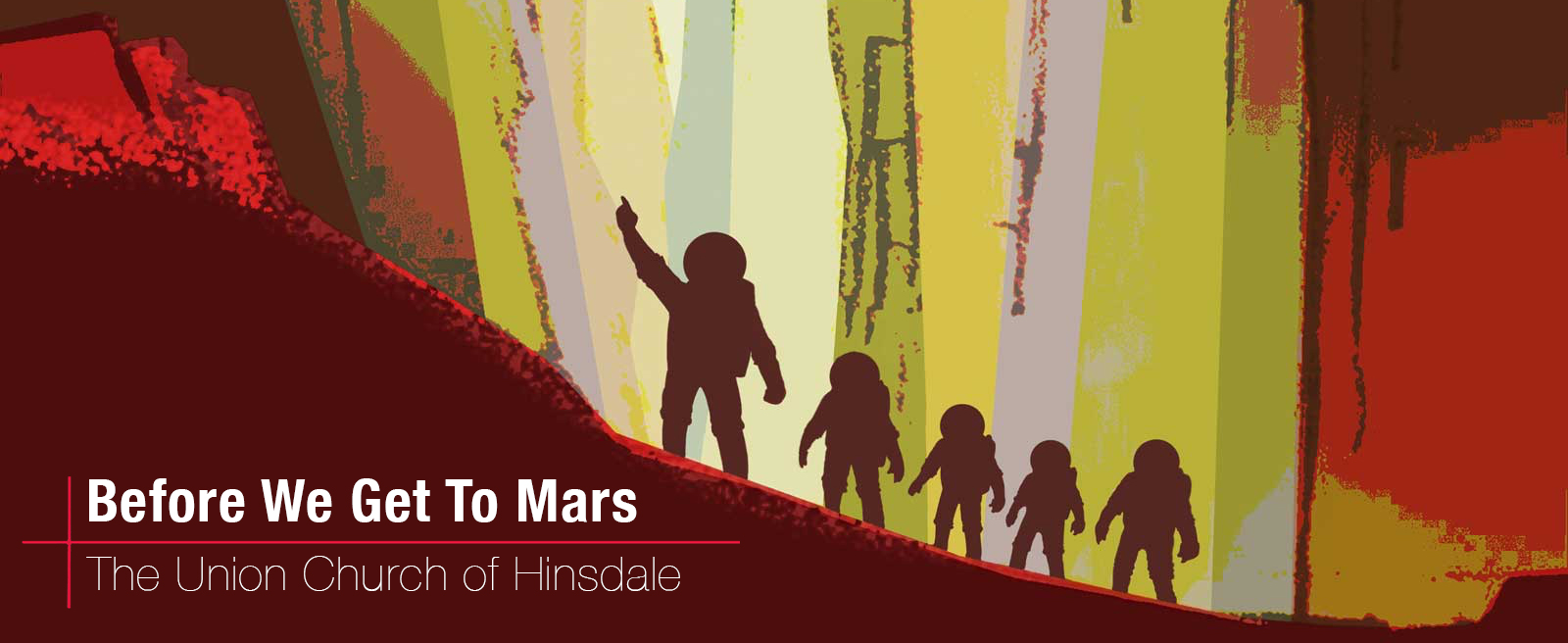On Saturday, February 2, 2019, we had a great all church retreat dedicated to our Before We Get to Mars focus on education. We learned some about the education issue, how to accomplish real change in the public realm, and planned our next steps. About 75 people were there to learn, contribute, and collaborate.
In summary, our BWGTM focus fits well with, and should always keep in mind our four core statements as Union Church:
· God is real, and we take time to get to know God better.
· We have power, and we use that power, with others, to make the world more like Jesus wants it to be.
· Other people are great, and we take time to get to know them better.
· We love children and youth, and as they grow, we help them develop personal, curious, generous, and socially engaged Christian faith.
The congregation settled on education as the focus area because it fits well with our interests and skills, and because it is so important in making a lasting difference in people’s lives. Education is so important, in part, because it allows people to be more in control of their own lives – to be self-determining (not simply self-reliant).
We spent a good deal of time in a “mini-seminar” on community organizing – thinking about the practices of making a difference in the public realm. We thought about the three primary public “sectors” of our U.S. form of democracy: civic institutions (broadly defined), government, and business. In the U.S., the business sector seems to be influencing more and more of our lives, especially the younger you are. Civic groups (including church, family, neighbors/local communities, fraternal groups) are having less and less influence on the overall public sphere. Broadly speaking, that’s not healthy for our society, and makes change difficult. The goal of community organizing is to develop and organize the power of the civic sphere to accomplish the things people want. This is critical to the issue of education, where the government and increasingly business sectors have so much power.
Building power in civic institutions begins with relationships – simply getting to know people, what motivates them, what gifts they have, and what concerns/problems they have. So we spent time talking, one-to-one. It’s so important, but we don’t do it enough in the world today!
We then looked into some of the dynamics of education in our region. You can get too far thinking about education without facing the reality of racial inequality in education. We watched two short and excellent videos on this. The first video explores the source of so much of the racial dynamics of the Chicago region – redlining – and the second video talks about how this connects to education specifically. They are short and great – watch them!
This is changing some with recent state legislation, but at least at the start of 2018, Illinois relied more heavily on local property taxes to fund education than any other state. That’s great in one sense, because local communities like having greater control over their schools. However, it also means that the racial discrimination in housing of the past (and its continuing effects) more strongly affects education today.
The United States in general, when compared to other “advanced” economies, under-invests in early childhood education in particular – although Illinois has actually been one of the best states at funding early childhood education. It’s interesting to look at how they handle this issue in Canada, for example.
We highlighted over and over again that we in Union Church need to build relationships and partnerships, getting to know the people for whom quality education is a constant battle. Lasting change will require relationships and engagement and building on the experience and skills of others, not on providing a fix to someone else’s problems.
We did a SWOT analysis of our situation with regard to education, and we listed:
Strengths: congregational interest, UCECP, financial resources, connections, people, networks, educators, financial expertise, experience in making things happen, faith-based motivation, concern for social justice, grace
Weaknesses: haven’t walked in those shoes (lack relationships), need a plan, everyone is busy, fear, language (in relating to Spanish speaking communities), apathy, all white, inexperienced in this issue, risk of being too abstract/high level, possible arrogance, no sense of urgency, geography
Opportunities: seeing God, to grow in unity of purpose, there is a need/accomplish change, get out of comfort zone, Willowbrook community, learn about strengths of others, help future generations, form partnerships, create a legacy, grow our church, blur the margins, to create lasting change
Threats: not listening – leads to failure and making worse, failure!, lack of stamina, rejection, internal church politics, unwelcome change in identity, conflict with community, lack of accountability, fear, unaware of our own biases
We then brainstormed possibly needed elements of a two year plan for moving forward: project director, create leadership team, make a plan!, research (what to do? where? scope?), decide on narrower focus, increase congregational buy-in and education, think of parents, develop working paper, decide the best structure for decision making/advancement, develop metrics, think through our congregational systems
Finally, 20 people signed up to be on a short to mid range steering team to develop a plan of action for the next two years of work Before We Get to Mars! That group will be meeting before the end of February.


